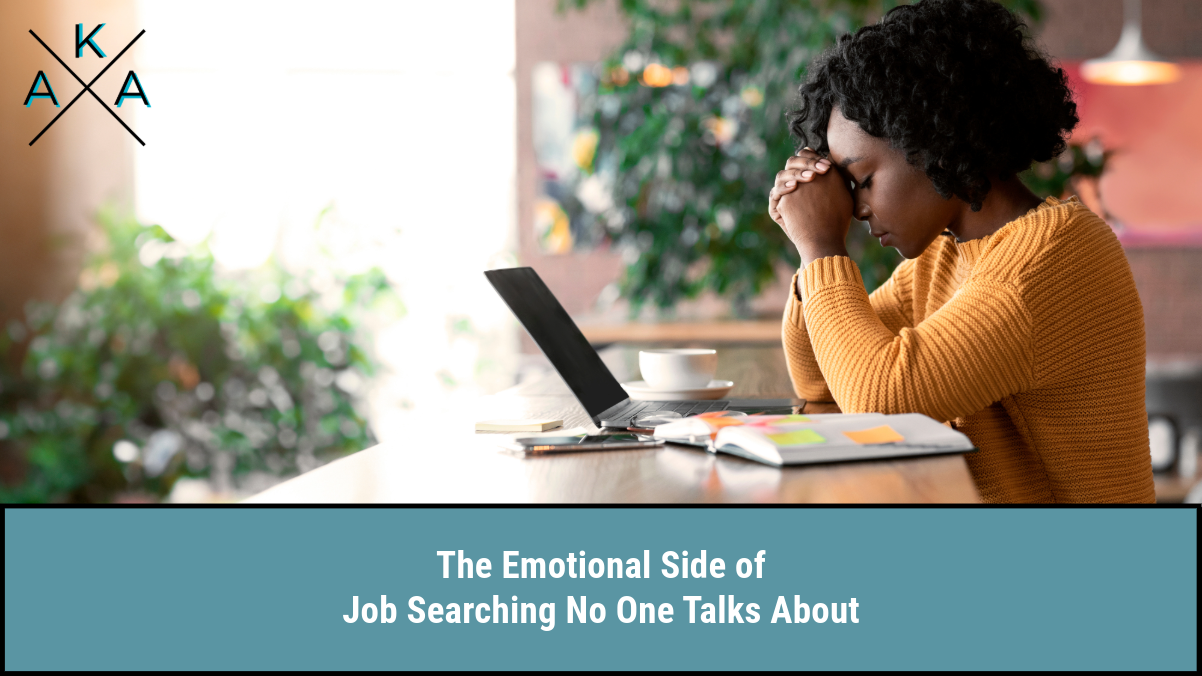Job searching is often framed as a process of perfecting your resume, sharpening your interview skills, and finding the right fit. But behind the polished LinkedIn updates and templated cover letters is a deeply personal journey filled with highs, lows, doubts, and unexpected emotions. Whether you’re just starting out or have been in the market for a while, the emotional side of job hunting is real—and it deserves more attention.
In this blog, we’re going to dive into the mental and emotional layers of job searching that often go unspoken. Understanding how you feel is as important as what you’re working toward.
The Stress of Uncertainty
One of the hardest parts of job searching is not knowing what’s coming next. You might submit dozens of applications and hear nothing back. Interviews go well, and then… silence. This uncertainty can weigh heavily, especially if you’re under financial pressure or your self-worth is tied to your career. It’s more than just waiting—it’s an emotional limbo that can affect your focus, confidence, and motivation.
Even when you’re taking all the right steps, it’s easy to question your path. Am I aiming too high? Not doing enough? Why haven’t I heard back yet? These unanswered questions can create a mental loop of doubt and second-guessing. It’s important to recognize that uncertainty is part of the process—but it doesn’t define your worth or your future.
- Mental drain: Constant unpredictability can make it hard to stay motivated.
- Financial anxiety: A lack of income or stability often adds pressure to make fast decisions.
The Weight of Rejection
Rejection stings, even when we tell ourselves it’s part of the game. It might not be about you, but it can still feel that way. Hearing “no” repeatedly—or worse, not hearing anything at all—can slowly chip away at your confidence. You start to wonder what you did wrong, even when the role simply wasn’t the right match. These feelings are valid, and acknowledging them is the first step in regaining your footing.
The challenge is to keep showing up even after disappointment. Each “no” can feel heavier than the last, especially when you’re emotionally invested. It’s okay to feel discouraged, but don’t let that discouragement harden into self-doubt. Reframing rejection as redirection rather than failure can help protect your mindset while keeping you open to better opportunities ahead.
- Confidence dips: Frequent rejections can lead to questioning your abilities.
- Silence hurts too: Not getting a response at all can feel worse than a rejection email.
The Loneliness of the Search
Job searching can be incredibly isolating, particularly if you’re doing it full-time or have few people to confide in. While others are posting job wins or promotions on social media, it may feel like you’re stuck in place. It’s easy to withdraw from conversations, feel embarrassed, or assume you’re the only one struggling. This loneliness isn’t often discussed, but it’s a common experience.
Feeling the need to appear put-together often leads job seekers to hide their struggles. But connection matters. Having a support system—even just one trusted friend or mentor—can provide emotional relief, motivation, and perspective. Don’t be afraid to reach out, vent, or ask for help. You’re not alone, and your network can often do more for you than a job board ever will.
- Social isolation: Feeling disconnected from others adds emotional weight to the process.
- Hidden struggle: Many people job hunt in silence, which can make the journey feel lonelier than it is.
The Identity Crisis It Can Trigger
For many, work isn’t just a paycheck—it’s part of their identity. So when you’re unemployed or in transition, you may start to feel like you’ve lost a piece of yourself. You might find yourself asking, “What’s my identity without this job?” or “What path truly feels right for me?” are both common and uncomfortable. It can be unsettling to realize how much your self-image is tied to your career path.
But this crisis can also be an opportunity. It forces you to dig deeper and ask what truly matters. What difference do you want your work to make? How do you personally define success? Rather than rushing to fill the gap, you can use this time to reset your values, goals, and direction. It’s a chance to redefine your career from the inside out—and come back stronger.
- Loss of identity: Without a clear job title, some people struggle to define their self-worth.
- Redefining success: Job transitions often spark deeper questions about purpose and priorities.
Conclusion
Job searching is far more than a logistical task—it’s an emotional journey. And just like any meaningful journey, it comes with setbacks, introspection, and growth. If you’re feeling stressed, rejected, lonely, or uncertain, know that you’re not broken—you’re human. These emotions are part of the process, and acknowledging them can help you move forward with resilience and self-compassion.
Remember: you’re not just looking for a job—you’re building a future that fits who you are and who you’re becoming. That takes courage. That takes heart. And most importantly, that takes time.


